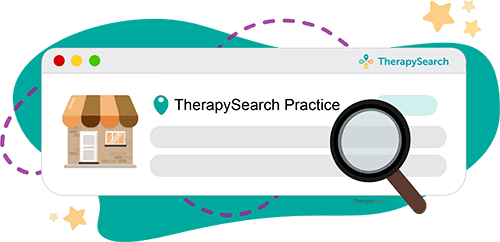How to Have a Successful Rural Counseling Practice
By L. Gordon Brewer, LMFT on April 28, 2021

People choose to live in rural communities for any number of reasons. I would say that the number one reason is because they have a connection to that community—it's where they are from.
Rural communities not only provide physical space and some solitude, but they also provide deep family and peer connections. There is a sense of solidarity that people experience there. There is the potential to truly know your neighbors and come to depend on them in ways that a person living in an urban area might miss out on.
As a therapist in a private practice that works in both worlds—urban and rural—I am noticing that there are some interesting differences between urban practices and those in more rural areas. I was initially interested in some of the differences in business practices. However, as I talked with other rural based therapists, it became the overlap of ethics and how your business model might differ from those of urban areas.
Where I am located, Northeast Tennessee, is by far a unique region of the country. Firstly, I'm in the South with all the cultural implications that goes with that. Secondly, I am in the Appalachian region with a whole other set of cultural norms and values. Economically, Appalachia is still predominantly rural and has some of the highest rates of poverty in the country. Socioeconomically, it still lags behind the rest of the country. But the truth is, Appalachian culture is not too different from many other rural cultures.
So how do all of these factors affect the way a counselor might run their private practice? Would this be true of most rural private practices?
Here are a few practical considerations for private practices in rural areas:
Know Your Demographics
When thinking about the potential clients that you might be serving in rural areas, it is important to understand the socioeconomic and age demographics of your area. For example, what is the population of your geographic area and where do most people work and/or have their occupations? Are they farmers, miners, or work in local retail, etc.? This will help you in knowing how to market your practice.
Also, knowing the demographics can help you know what to expect about what fees to charge and what is realistic. A therapist practicing in a rural area is probably not going to be able charge the same rates as in urban areas. In general, the cost of living in rural areas is lower, so you will need to adjust your fees accordingly. I will also say, being on insurance panels might be more advantageous for a rural practice compared to an urban practice.
Being on insurance panels makes a therapist more appealing to a larger pool of potential clients. There are some definite downsides to being on insurance panels, but in rural areas it might be a good business decision to consider.
Take Advantage of Telehealth
As we have learned through the whole COVID pandemic, counseling and therapy services are perfectly suited for telehealth. Mostly everyone has a mobile device that can give them access. However, in some rural communities, access to a good cell signal or high speed internet might be a barrier.
Nonetheless, telehealth as an option is, more often than not, a very appealing option for people living in rural areas. Many people in rural areas have to drive long distances to reach any services. By offering telehealth, clients no longer have to commute and take time away from work to see their therapist.
Another bonus to telehealth is that you can also offer services to anyone within your state or licensure jurisdiction—so your client base is greatly expanded.
Marketing More Hands On
The internet and social media does make it easier to reach people in large geographic areas, but being able to make personal contacts is probably a more effective way to reach people in rural areas. Getting to know and introducing yourself to local pastors and clergy is a good place to build referrals, as well as being known to local medical clinics and the doctors working there. Also, recognize that your geographic area is going to be much larger. In general, I would say try to market in at least a 50 mile radius, maybe larger. That way you draw from a greater volume of people that might need your services.
For most practices, having a defined niche is always a good strategy. On the other hand, when you are in a rural area where there are limited services, learning to be a good “generalist” therapist is helpful. Being able to address and know about several different issues would be beneficial.
This requires that the therapist stays current on their readings and learning about new things. In many ways it is like being a “country doctor”—you have to know how to treat a wide variety of less serious issues and also know when to refer. It is also good practice to develop a referral list/network of therapists you can refer to when you get cases that you feel you would not be as effective with—load yourself up with resources.
Network With Other Therapists
Get to know and try to get with other therapists that might be in your area. Rural practices, especially solo practices for that matter, can get lonely. Even if there are just a few therapists in an area, network with them and get to know them and their areas of expertise. I promise, they will be glad to have some relief and other therapists they can refer to when they get overloaded!
Understand That Dual Relationships are Different in Rural and Small Communities
In rural and small communities, knowing a lot of the people living there just goes with the territory. It is what makes rural living so unique—everybody knows everyone! Therefore, it would not be unusual for clients to be people that you either do business with or know socially. It kind of goes against most of our ethical standards to have dual relationships. However, in rural communities, sometimes it cannot be avoided.
One of the ways to address this is to be clear on the front end with clients about confidentiality and that you not discuss any of their counseling issues outside of sessions. For example, with my practice it is not unusual for me to see people that I also happen to know in the community. Always set very clear boundaries with them that you will not discuss anything with them while you are out in the community or at social functions. For the most part, people understand this and are very happy to know that you are protecting their confidentiality.
When it comes to business practices, never barter or offer your services in exchange for someone else’s services—I think the ethical codes are pretty clear about that anyway—but in rural communities, that issue does come up.
It is possible to have a thriving private counseling practice in a rural setting. It can be very rewarding and give a therapist the opportunity to serve people in a unique and much needed way. Mental health services in rural communities are sometimes very hard to come by. It does require the desire to have a different lifestyle and relationships outside of the session with your clients, and this can be so rewarding!
* The content of this post is intended to serve as general advice and information. It is not to be taken as legal advice and may not account for all rules and regulations in every jurisdiction. For legal advice, please contact an attorney.
About L. Gordon Brewer, LMFT
Get more content like this, delivered right to your inbox. Subscribe to our newsletter.
More Content You'll Enjoy

Converting Clients

What's New: Introducing Practice Profiles in TherapySearch!
